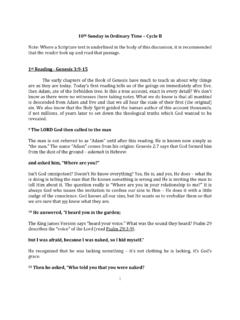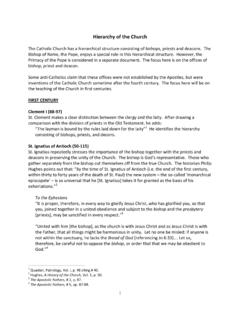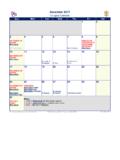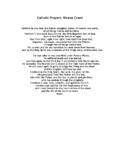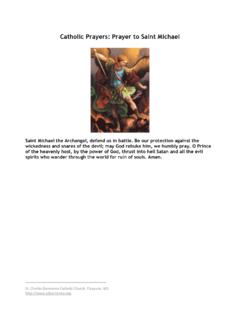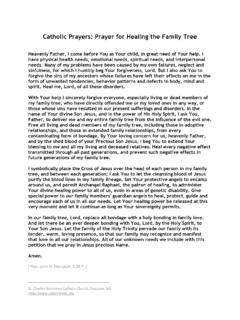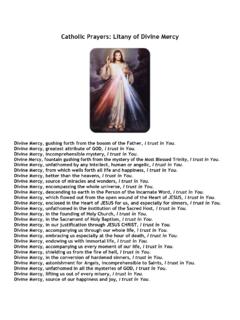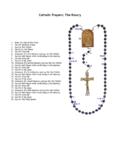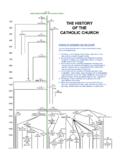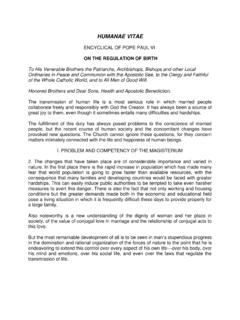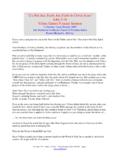Transcription of 15th Sunday in Ordinary Time - Cycle B
1 15th Sunday in Ordinary time Cycle B. Note: Where a Scripture text is underlined in the body of this discussion, it is recommended that the reader look up and read that passage. 1st Reading - Amos 7:12-15. Amos is the oldest of the books of prophetic literature, dating around the time 760. to 750 He appears to have been a layman with no special training for the religious ministry. Amos wrote during the reign of Jeroboam II of the Northern Kingdom (Israel). It was a time of peace and prosperity but also a period of social and religious corruption. Amos was a Judahite (Southern Kingdom) from the town of Tekoa which is about five miles south of Bethlehem.
2 Of all the books of prophecy, Amos is the least hopeful. Although he never makes a direct reference to the covenant at Mount Sinai, it underlies all his messages. In 3:1-2 for instance he reminds the people that God has acknowledged Israel as His covenant people but they abused the privilege. Since they have ignored the covenant, the curses associated with it shall befall them. Although Amos directs his words primarily at the leadership (the king in 7:10-11, the priests in 7:16-17, and the upper classes in 4:1-3 & 6:1) the coming judgment will affect the entire people because the nation of Israel has a common destiny.
3 In the verses immediately preceding today's reading, the priest of Bethel has sent a message to Jeroboam II reporting what Amos has said Jeroboam will die by the sword, and Israel will surely go into exile, away from their native land.. 12 Amaziah, The name means Yahweh is mighty.. [priest of Bethel,]. Bethel means house of El (God) It is located about 14 miles north of Jerusalem. It was a place of assembly where Jeroboam I had set up a golden calf (he set up another at Dan) and installed priests who were not Levites (1 Kings 12:28-31). Amaziah was not a priest of Yahweh. said to Amos, Off with you, visionary, Visionary is a contemptuous name for prophet.
4 Flee to the land of Judah! Go home - you are a foreigner here. Amos is a Judahite (Southern Kingdom) and Bethel is 1. on the border but in the Northern Kingdom. Amos is interfering in Israel's religious and political affairs. There earn your bread by prophesying, 13 but never again prophesy in Bethel; for it is the king's sanctuary and a royal temple.. Bethel was the official sanctuary of Jeroboam II. It is a place of immunity and a holy place under the king's protection. 14 Amos answered Amaziah, I was no prophet, nor have I belonged to a company of prophets; I was a shepherd and a dresser of sycamores. Amos is listing his credentials.
5 He is not a professional prophet or connected with them. He is a shepherd (a lonely occupation) and a dresser of sycamores. The sycamore is a fruit related to the fig but smaller. It is the food of the poor. At a certain point in its development, the dresser had to puncture the fruit so it would grow large enough to become edible. This was seasonal work. 15 The LORD took me from following the flock, and said to me, Go, prophesy to my people Israel. Amos is a prophet not by his choice or inheritance or training, but because of the personal intervention of God. 2nd Reading - Ephesians 1:3-14. In the time of Paul Ephesus was the leading city in Asia Minor.
6 It contained the temple of the Roman goddess Diana, the goddess of fertility, which was considered one of the seven wonders of the ancient world. The city's jewelers did a very profitable business through the manufacture of statuettes of the goddess which explains why the people rioted, at the instigation of Demetrius the silversmith (Acts 19:24ff) against Paul and his companions, who naturally, preached against superstition and the worship of idols. Paul had to leave in a hurry because of the riot and left Timothy as the head of the church (1. Timothy 1:3). Tradition has it that Timothy died there confessing the Name of Christ.
7 It is not known if the Ephesians were the first recipients of this letter. The words who are at Ephesus (Ephesians 1:1) do not appear in the earliest Greek manuscripts leading some scholars to believe this may have been a circular letter to all the churches in the region. It has a strong parallel, in both form and content to Colossians and may have been written to develop the teaching contained in Colossians. Scholars have dated this letter during Paul's captivity in Rome ( 61-63). Today's reading is a hymn of praise to God for the plan of salvation He has devised 2. and brought to fulfillment for the benefit of men and all creation.
8 In the Greek it is one long complex sentence full of relative pronouns and clauses which give it a designated unity. 3 Blessed be The blessing begins with a formula known from the Old Testament and commonly used in Jewish and early Christian prayers (Tobit 13:1, 1 Peter 1:3). The formula recognizes God's greatness and rejoices of the divine gifts which have been received. the God and Father of our Lord Jesus Christ, who has blessed us in Christ with every spiritual blessing References to God the Father, Jesus the Christ, and spiritual blessings have been seen as a reference to the Holy Trinity because it is the Holy Spirit who distributes the gifts of God.
9 In the heavens, Indicates unity of the heavenly and earthly worlds 4 as he chose us in him, before the foundation of the world, The choice is not accidental, but part of God's plan from the very beginning. to be holy and without blemish before him. In the Old Testament, the victim offered to God had to be unblemished, blameless (Genesis 17:1). All the baptized are called to live a holy life (be saints); being a believer commits us to do so. Holiness is, therefore, a gift of God which implies an obligation to further its development. Complete holiness will be attained only in heaven. It is asked how anyone can be saintly and unblemished in God's sight.
10 We must reply (that) Paul does not say He chose us before the foundation of the world on account of our being saintly and unblemished. He chose us that we might become saintly and unblemished, that is, that we who were not formerly saintly and unblemished should subsequently be so. [Saint Jerome ( 386), Commentaries On The Epistle To The Ephesians, 1,1,4]. You have been chosen,' he says, in order to be holy and unblemished before His face.' .. He Himself has made us saints, but we are called to remain saints. A saint is one who lives in faith, is unblemished and leads a blameless life. [Saint John Chrysostom ( 392-397), Homilies On The Epistle To The Ephesians, 1,1,4].
